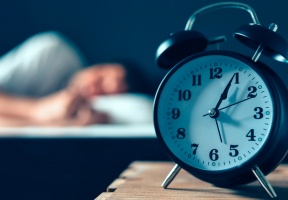

Millions of Americans toss and turn much of the night, unable to fall asleep – or to stay asleep once they finally do drift off. Maybe it’s worry about bills. Maybe it’s relationship problems. It might even be a sleep disorder keeping them awake when they should be snoozing soundly. Whatever the reason, more than one-third of American adults don’t get enough sleep on a regular basis, according to the Centers for Disease Control. “Lack of sleep can leave you fatigued and with a weakened immune system, which could make you more susceptible to infections,” says Dr. Shab Krish, author of Restore Your Rest: Solutions for TMJ and Sleep Disorders. Krish, who is also director of TMJ & Sleep Therapy Centre of North Texas, offers a few suggestions for those who find themselves still grumpy and exhausted when morning arrives:
• Set your clock to remind you bedtime is approaching. You probably already set your clock so that you wake up when you need to in the morning. But Krish suggests you also set an alarm for 30 minutes before bedtime. “That will be a reminder that you need to shut off your electronic devices and start to unwind,” she says. Krish says you should strive to go to bed at the same time every night.
• Follow rituals. Establish nightly bedtime rituals, such as taking a warm bath, listening to relaxing music, or reading. “Getting into a nightly routine will tell your brain that it’s time to start relaxing and preparing for sleep,” Krish says.
• Use your bed only as a bed. People lead busy, stress-filled lives, and sometimes they take their work to bed right along with them, determined to answer one last email or finish that report before they turn out the light. Bad idea, Krish says. “Doing work or other stressful activities while in bed can make it difficult for your brain to relax when it’s time to sleep,” she says. “Go into a different room to finish that work. That way when your body hits the mattress, your brain knows it can start to relax.”









